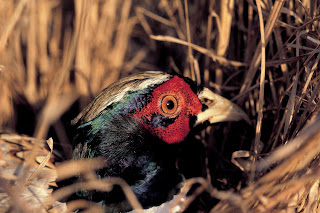 I've written often about individuals who've mentored me, and how fortunate I am to know them. I've learned plenty about the outdoors by reading, watching video and just getting out there, but I learned invaluable lessons from mentors; lessons that helped me be more successful, safer, and legal in the field. Recently, I've had a couple phone calls from potential hunters wondering how to get started. Both were men in their 40s. Neither had any hunting experience, and neither knew anyone who hunted.
I've written often about individuals who've mentored me, and how fortunate I am to know them. I've learned plenty about the outdoors by reading, watching video and just getting out there, but I learned invaluable lessons from mentors; lessons that helped me be more successful, safer, and legal in the field. Recently, I've had a couple phone calls from potential hunters wondering how to get started. Both were men in their 40s. Neither had any hunting experience, and neither knew anyone who hunted.So what can they do? My advice is get acquainted with a hunter or hunters because there really is no substitute for an experienced mentor. And I know that's not as easy as it may sound. While most hunters I know freely mentor people, hunting is very personal. Everyone hunts for different reasons, and those reasons are shaped by life experiences, personality and lifestyle. So just walking up to someone who looks like a hunter and asking them for help learning about hunting may get a cold shoulder. However, getting to know a hunter first will nearly always result in the transfer of information and possibly personal mentoring.
I recommend getting to know hunters through conservation organizations, local gun clubs or outdoor shows and events. It will take time, but conservation organizations such as Ducks Unlimited, the Kansas Wildlife Federation, Pheasants Forever, or the National Wild Turkey Federation are made up of hunters and outdoor people. When they learn of your interest, desire and commitment, they'll take you in. Likewise, local trap, skeet and sporting clays ranges include many members who hunt. The small clubs are always recruiting new members, so newcomers and beginners are usually welcomed.
Just remember, a potential mentor will want to know you and trust you before any mentoring will takes place. Developing a trusting relationship takes time. Get to know people and let them get to know you, then you can begin a journey to become a hunter.
